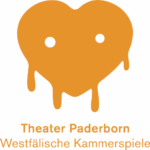Decision support for cultural enterprises
The project team
The project TheaterLytics was a joint project between the University of Paderborn, Theater Paderborn - Westfälische Kammerspiele GmbH and OPTANO GmbH.
The University of Paderborn was represented by researchers from the fields of business informatics, in particular digital markets and service management, who were involved in the SICP - Software Innovation Campus interdisciplinary research.
The Theater Paderborn as a professional theater has provided the content basis for the project. With 15 new productions in the main program on a total of three stages, the theater delights around 65,000 spectators per season with its varied repertoire.
OPTANO GmbH uses expert knowledge in the field of operations research and in-depth knowledge of the development and implementation of IT solutions to convert current research results into usable application software.



Goals at a glance
Better achievement of occupancy and sales targets
Less planning effort in all planning phases
Improving resource utilization
Quick rescheduling and replanning
The project in detail
The challenge
In publicly funded cultural institutions - including Theater Paderborn - decisions must always be considered from several perspectives. On the one hand, commercial objectives must be considered and achieved. These decisions include, for example, the scheduling of premieres or pricing. On the other hand, there are artistic decisions that may conflict with these objectives. Examples include the choice of play and the casting of roles. Furthermore, the theater must live up to its cultural-political mission and must not ignore current socio-political considerations.
Until now, all of these decisions at Paderborn Theatre, as in many other cultural institutions, have been made on the basis of experience and expert knowledge. This means that the diverse knowledge gained from experience has not been systematically processed. Changing this situation was an important goal of the project. The expert knowledge was to be formalized and made available in a decision support system.
In addition, the results should be prepared and made available to other cultural professionals.
The solution
The results of the project are, on the one hand, a decision support system and, on the other hand, a methodological toolkit that enables the acquired knowledge also makes it accessible to other cultural institutions.
The decision support system provides systematic data preparation and support for the selection of plays, premiere planning, open sales planning and controlling.
Piece selection
The decision support system enables the systematic recording and retrieval of all plays read (and their evaluation) that could be considered for a season. The longer this data pool grows, the more important it will become for the work of dramaturges. In addition to their own assessments, data from other theaters can be retrieved to simplify the search for potential plays.
Premiere planning
The manual planning of premiere dates is a very time-consuming and error-prone task. The dates are dependent on many conditions: Availability of the required (external and permanent) actors*, the rehearsal phases without time overload and the availability of a suitable venue. Formalizing these requirements in such a way that a mathematical optimization can be carried out on them was an important step in the project, as many of the requirements are obvious to us humans, but must be formulated precisely for the algorithm.
Over-the-counter sales planning
Theater Paderborn uses a subscription system for its ticket sales, which provides for subscription performances for certain plays and for which a smaller number of tickets go on free sale. In addition, free-sale performances can be held for a play, the number and exact dates of which must be determined.
The decision support system has a clear presentation of the quantitative and qualitative evaluation of historical data from pieces that have already been played. The additional option of comparing two similar pieces underpins the decision-making process for over-the-counter sales planning with data and thus simplifies it.
Controlling
Suitable key figures for evaluation were selected for controlling and compiled into a structured overview. At this point, the key figures can now be evaluated and appropriate measures introduced. The success of these measures can then be monitored in the decision support system.
The result
The project developed an IT tool to support commercial and artistic theater decisions, which is already being used productively for the first time this season. The data-based analyses have provided valuable insights into visitor behavior and the design of offers. Drawing the right conclusions from these findings and making the right decisions is a learning process that is currently underway.
Other cultural institutions will also benefit from the results in the future. The project results have been systematically summarized in an action guide and published as a transfer offer for interested parties on the Project page published.
You are currently viewing a placeholder content from YouTube. To access the actual content, click the button below. Please note that doing so will share data with third-party providers.
More Information